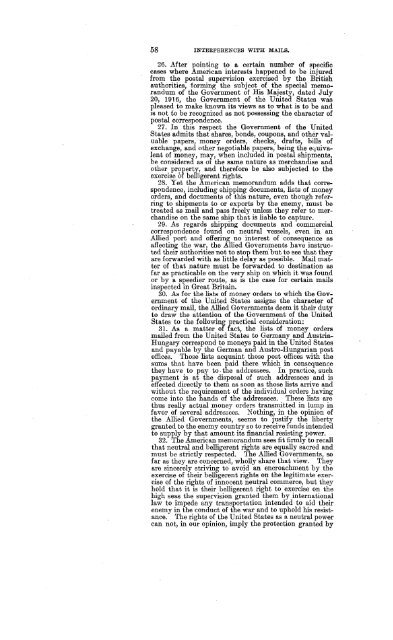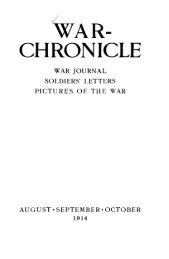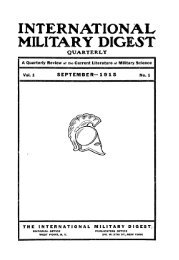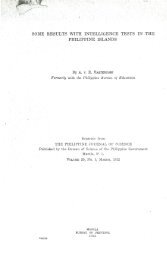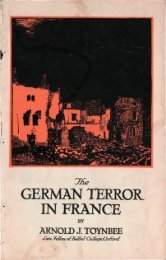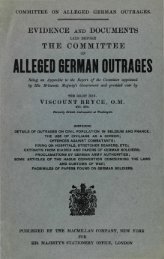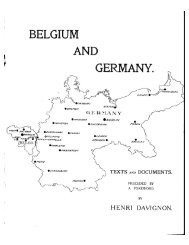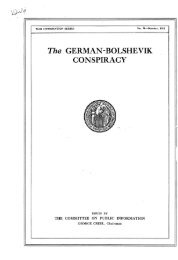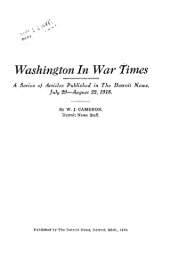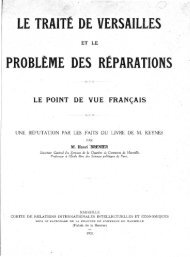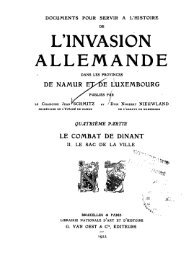DEPARTMENT OF STATE.
DEPARTMENT OF STATE.
DEPARTMENT OF STATE.
Create successful ePaper yourself
Turn your PDF publications into a flip-book with our unique Google optimized e-Paper software.
58 INTERFERENCES WITH MAILS.<br />
26. After pointing to a certain number of specific<br />
cases where American interests happened to be injured<br />
from the postal supervision exercised by the British<br />
authorities, forming the subject of the special memorandum<br />
of the Government of His Majesty, dated July<br />
20, 1916, the Government of the United States was<br />
pleased to make known its views as to what is to be and<br />
is not to be recognized as not possessing the character of<br />
postal correspondence.<br />
27. In this respect the Government of the United<br />
States admits that shares, bonds, coupons, and other valuable<br />
papers, money orders, checks, drafts, bills of<br />
exchange, and other negotiable papers, being the equivalent<br />
of money, mav, when included in postal shipments,<br />
be considered as of the same nature as merchandise and<br />
other property, and therefore be also subjected to the<br />
exercise of belligerent rights.<br />
28. Yet the American memorandum adds that correspondence,<br />
including shipping documents, lists of money<br />
orders, and documents of this nature, even though referring<br />
to shipments to or exports by the enemy, must be<br />
treated as mail and pass freely unless they refer to merchandise<br />
on the same ship that is liable to capture.<br />
29. As regards shipping documents and commercial<br />
correspondence found on neutral vessels, even in an<br />
Allied port and offering no interest of consequence as<br />
affecting the war, the Allied Governments have instructed<br />
their authorities not to stop them but to see that they<br />
are forwarded with as little delay as possible. Mail matter<br />
of that nature must be forwarded to destination as<br />
far as practicable on the very ship on which it was found<br />
or by a speedier route, as is the case for certain mails<br />
inspected in Great Britain.<br />
30. As for the lists of money orders to which the Government<br />
of the United States assigns the character of<br />
ordinary mail, the Allied Governments deem it their duty<br />
to draw the attention of the Government of the United<br />
States to the following practical consideration:<br />
31. As a matter of fact, the lists of money orders<br />
mailed from the United States to Germany and Austria-<br />
Hungary correspond to moneys paid in the United States<br />
and payable by the German and Austro-Hungarian post<br />
offices. Those lists acquaint those post offices with the<br />
sums that have been paid there which in consequence<br />
they have to pay to • the addressees. In practice, such<br />
payment is at the disposal of such addressees and is<br />
effected directly to them as soon as those lists arrive and<br />
without the requirement of the individual orders having<br />
come into the hands of the addressees. These lists are<br />
thus really actual money orders transmitted in lump in<br />
favor of several addressees. Nothing, in the opinion of<br />
the Allied Governments, seems to justify the liberty<br />
granted to the enemy country so to receive funds intended<br />
to supply by that amount its financial resisting power.<br />
32. The American memorandum sees fit firmly to recall<br />
that neutral and belligerent rights are equally sacred and<br />
must be strictly respected. Ihe Allied Governments, so<br />
far as they are concerned, wholly share that view. They<br />
are sincerely striving to avoid an encroachment by the<br />
exercise of their belligerent rights on the legitimate exercise<br />
of the rights of innocent neutral commerce, but they<br />
hold that it is their belligerent right to exercise on the<br />
high seas the supervision granted them by international<br />
law to impede any transportation intended to aid their<br />
enemy in the conduct of the war and to uphold his resistance.<br />
The rights of the United States as a neutral power<br />
can not, in our opinion, imply the protection granted by


